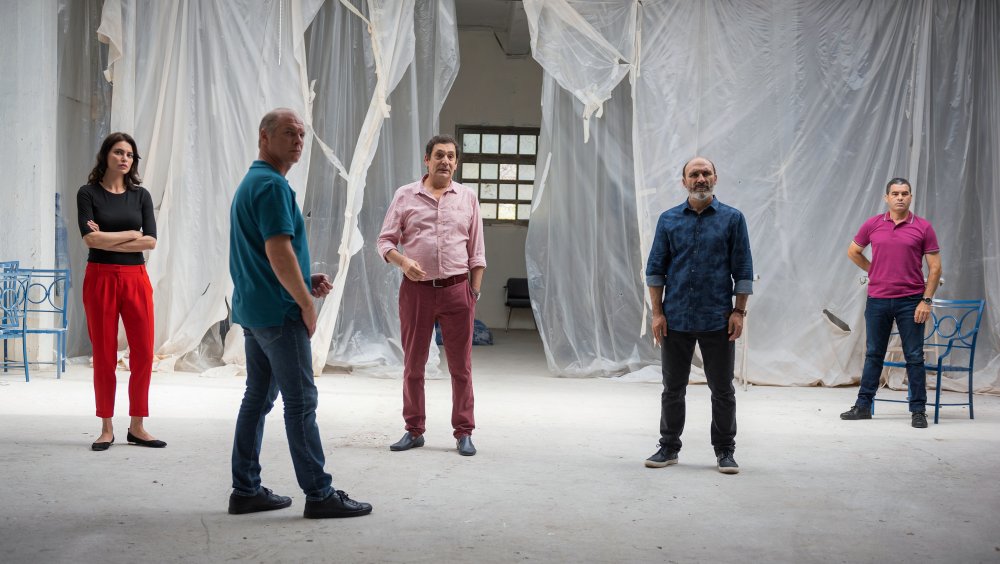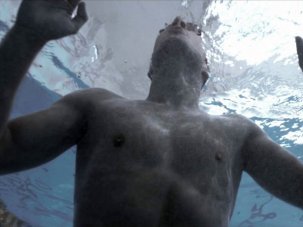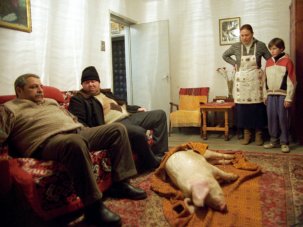Anyone who’s been following the work of Corneliu Porumboiu, the Romanian master of deadpan minimalism with a predilection for overcast skies and porridge-hued interiors, will be surprised to find that The Whistlers opens with Iggy Pop’s The Passenger playing over a sunny vista of the Canary Islands’ La Gomera. Porumboiu’s first film to venture beyond his country’s borders represents a major stylistic departure, an attempt at integrating the director’s usual thematic concerns and low-key humour into a frantic, overwrought narrative with sadly lacklustre results.
Romania/France/Germany 2019
1hr 38mins
Director Corneliu Porumboiu
Cast
Cristi Vlad Ivanov
Gilda Catrinel Marlon
Magda Rodica Lazar
Kiko Antonio Buil
Paco Agustí Villaronga
Zsolt Sabin Tambrea
[2.35 : 1]
In Romanian/English/Spanish
Original Romanian title La Gomera / Fluierătorii
UK release date 8 May 2020
Distributor Curzon Artificial Eye
homepage
► Trailer
Romanian New Wave stalwart Vlad Ivanov plays Cristi, a policeman working in Bucharest. A conversation with his superior about a sting operation that Cristi was involved in years back suggests the actor is reprising his character from Police, Adjective (2009), though with a different name. In that film, Ivanov’s police captain had called upon the authority of dictionary definitions – specifically, the distinction between the noun, verb and adjective forms of the word ‘police’ – to legitimate condemning a teenager to seven years of prison time for a negligible offence.
We now learn that the teenager shifted the blame on his brother, who later committed suicide in prison, giving a clue as to how the once rigidly rule-adhering policeman ended up as a criminal collaborator, freely cashing in bribes to supplement his measly salary. As ever in Porumboiu’s cinema, the narrative openly invites allegorical readings pertaining to Romania’s post-Communist history.
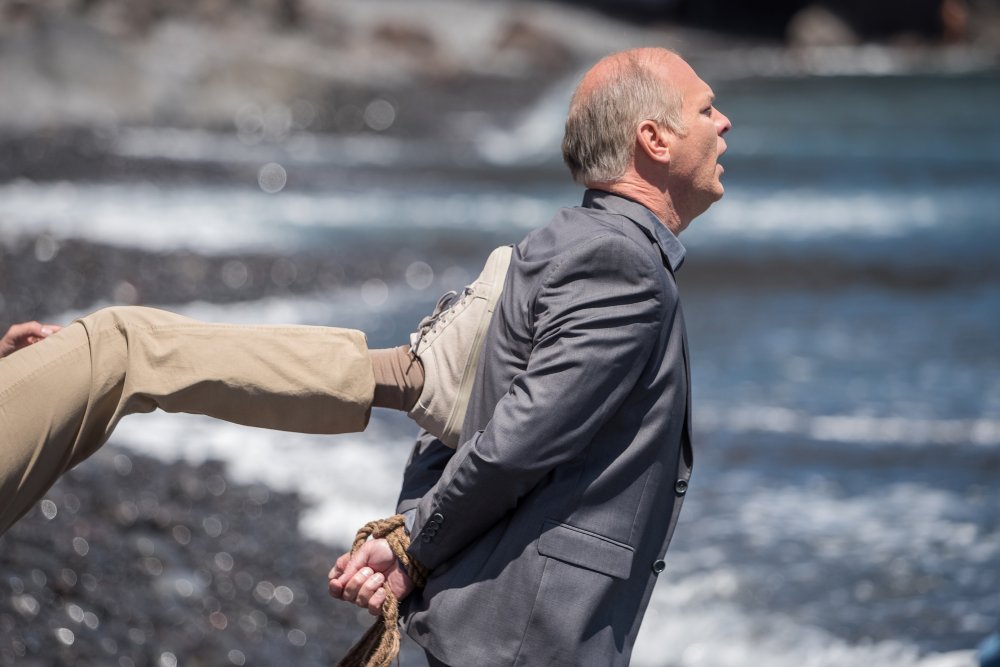
Vlad Ivanov as Cristi
What’s much less pronounced are the philosophical implications. Previously, Porumboiu’s pared-down plots almost functioned like theoretical experiments, with the characters navigating clear-cut yet ethically fraught situations that compelled the viewer to empathise and thereby participate in their quandary. But here Porumboiu makes it very difficult to identify with either Cristi or any of the six other characters whose names are used as chapter titles to this noir-inspired, chronologically jumbled tale of globetrotting racketeering and serial double-crossings.
All one-note archetypes – a stoic anti-hero, a ruthless crime boss, a corrupt police chief, a femme fatale called Gilda (Porumboiu makes no secret of his influences), and so forth – they barely register as humans as they’re rushed along a convoluted and impossible to parse story. At length, the incessant jumping back and forth in time and across borders starts to feel like mere showmanship, growing increasingly alienating rather than intriguing or comical in its absurd complexity, as presumably intended.
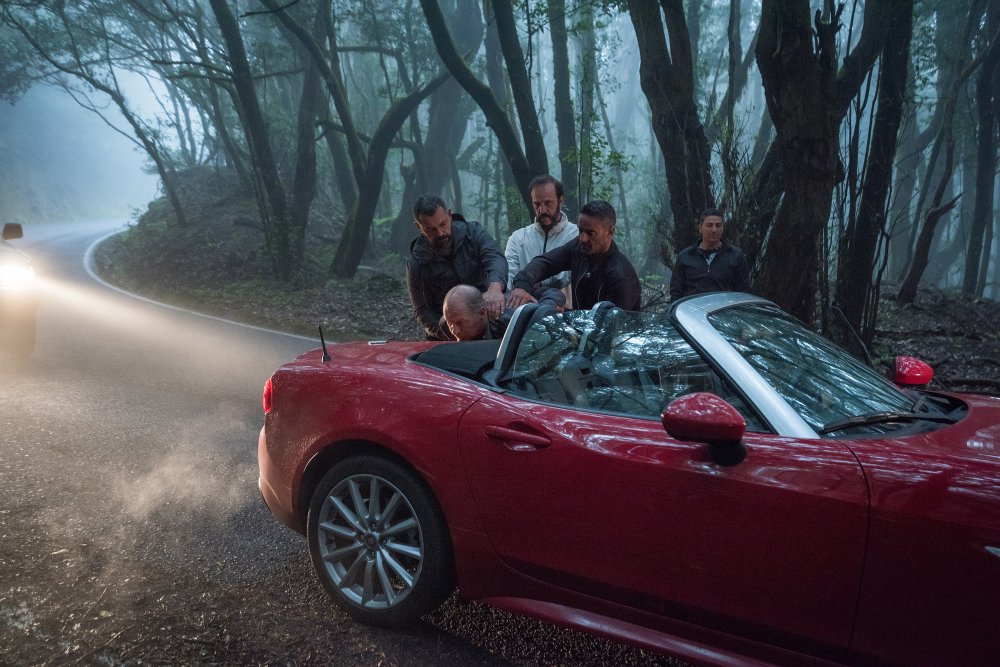
And it’s not that The Whistlers is lacking in thematic ambition. Cristi goes to La Gomera to learn a whistling language inspired by the Silbo Gomero, an actual mode of communication invented by the indigenous population to relay messages across the island’s valleys and ravines. That he does this in order to communicate with the criminals back in Romania without being intercepted by the authorities ties in with the film’s broader concern with the contemporary culture of surveillance, as all the characters are constantly monitored via wiretaps and hidden cameras.
Beyond that, Porumboiu also peppers the film with overt references to the history of cinema, setting a scene in the Bucharest Cinematheque and another on a disused film set. But by disallowing our investment in the characters or the narrative, and instead keeping us distracted with his script’s needless acrobatics, he gives us little incentive to try and figure out how all these disparate elements come together.
-
The Digital Edition and Archive quick link
Log in here to your digital edition and archive subscription, take a look at the packages on offer and buy a subscription.




